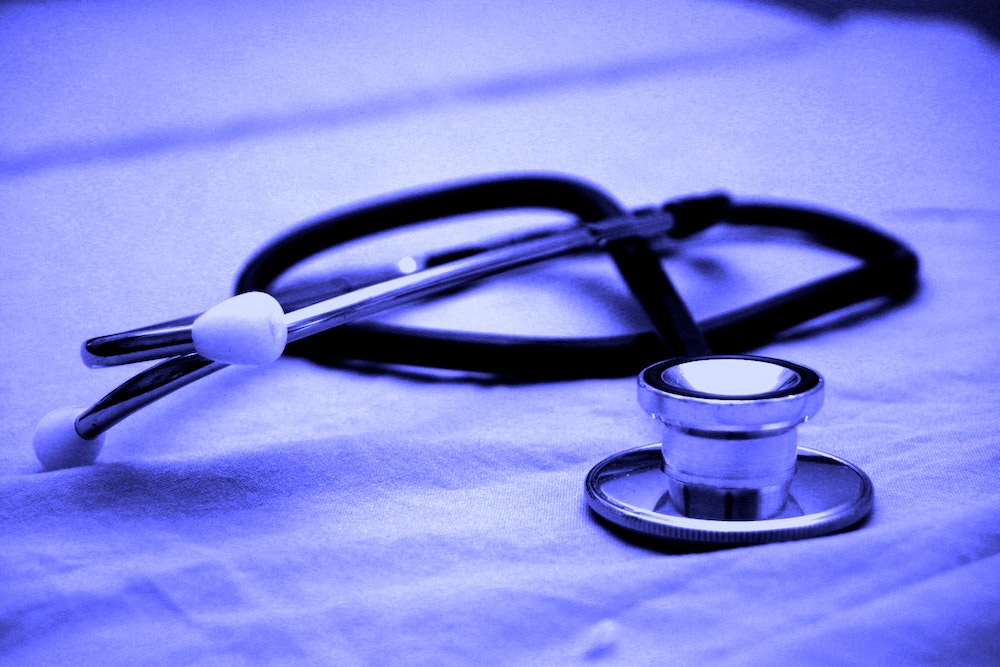
Stethoscope (Unsplash/Hush Naidoo)
If I learned one thing from being a community organizer in health care, it was that health care is a racial justice issue.
On one of my first days at work, I remember being shocked by the statistics I read in "Segregation in St. Louis: Dismantling the Divide," the 2018 report on segregation and housing that revealed there was a 20-year life-expectancy gap between white and Black St. Louisans, who were quite literally dying of racial segregation. St. Louis is among the 10 most segregated metropolitan regions in the country, with a long legacy of redlining, racial zoning and restrictive deed covenants. And these aren't just statistics. People are suffering and dying at the hands of racism.
Part of my job as a community organizer at Missouri Health Care for All included interviewing people for their health care stories and supporting people in writing op-eds and letters to the editor from their own perspectives. One leader in the movement — a sickle cell warrior — who I had the pleasure of working with ended up writing an op-ed about her personal experiences with racism in the St. Louis hospital systems. She talked about a lifetime of trying to fight for equal care in the eyes of sickle cell doctors and being "met with suspicious eyes … (being) questioned, interrogated, and disrespected." Black women with sickle cell are often discriminated against in a hospital setting and she had lived it.
The second year of my fellowship was spent working on the Medicaid expansion campaign in Missouri, which had tested language that showed the race/class divide was used to hinder progressive ballot initiatives. For this reason, we specifically worked at naming white supremacy in our conversation with potential amendment supporters. We also worked by a set of community agreements that agitated around racial justice, sought the destruction of white supremacy, and built in time for recuperation and healing.
Advertisement
We ultimately won the election and passed Medicaid expansion in August, proving that discussing health care issues as being about racial justice can drive home their importance in an election year. This win meant hundreds of thousands of Missourians formerly in the Medicaid gap — too poor for an ACA Marketplace plan, but too rich for Medicaid — finally had access to quality affordable health care.
This is so important because health care is foundational to employment, schooling and other contributors to quality of life. All Catholics should be health care voters with an eye to racial justice.
I think with Black Lives Matter at the forefront of our minds going into the 2020 election, there is a chance to call health care a racial justice issue again — on the national level, in the presidential debates.
This is a unique time for Catholics to get more serious about health care justice. The seven themes of Catholic social teaching ask us to prioritize the "life and dignity of the human person." This can be translated to prioritizing the health and well-being of all people. And, if Black Americans are uplifted, we all are.
Black Americans have some of the worst health outcomes in the nation, so if health care is extended to Black Americans, it will be to all Americans. Not only are health equity and racial justice linked, but they must be voted on like they're connected. We must vote like racial justice matters to us, because lives depend on it.
[Adele Maura McKiernan is a graduate of the University of Wisconsin-Madison, where they studied history and integrated liberal studies. They are now a second-year Loretto volunteer in St. Louis working at Missouri Health Care for All, as a grassroots organizing fellow.]
Editor's note: We can send you a newsletter every time a Young Voices column is posted. Go to this page and follow directions: Newsletter sign-up.





